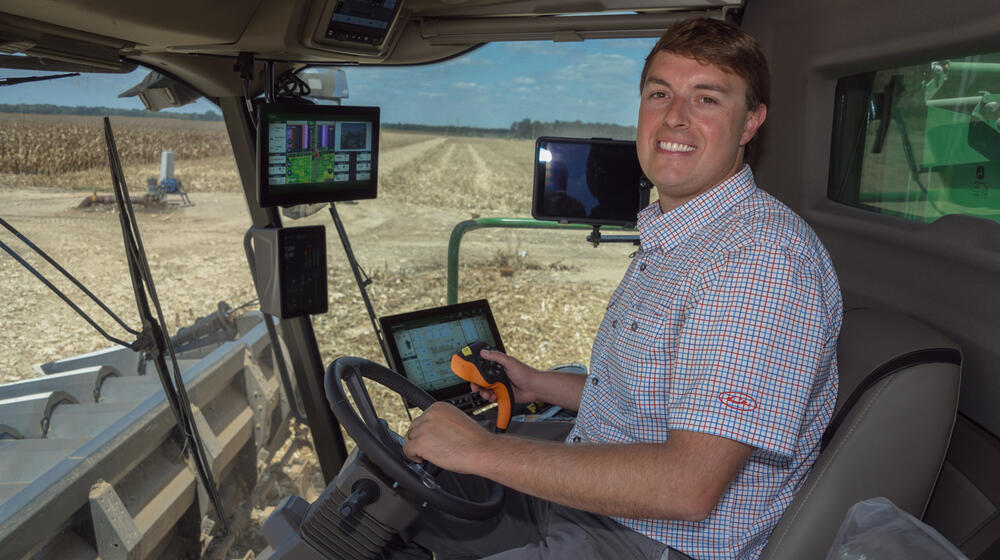Extension Matters
Volume 11 Number 3
Never Stop Learning
Delta producer partners with Extension to make data-driven production decisions
Story by Leah Bowers | Photos by Kevin Hudson
When producer Adron Belk of Leflore County receives the data on what’s happening across the acres he farms in Bolivar and Sunflower Counties, he makes plans to adapt. Belk wants to find and apply new and better ways to grow corn, soybeans, or any other row crop he may choose.
“I hope when I’m 60 or 70 years old, I’m still doing what I’m doing today. I hope I’m still learning, and I hope I don’t ever get to a place where I feel like I know everything and have all the answers,” Belk emphasizes. “If I get to that point, I’ll no longer be improving on what I’ve already learned so far.”
Belk grew up going with his dad to producer meetings delivered by the Mississippi State University Extension Service. When Belk needed his private applicator license to address crop pests and diseases in the field, he went to Extension, which offers the certification course all over the state. Belk’s dad had also partnered with Extension in completing research work on their acres.
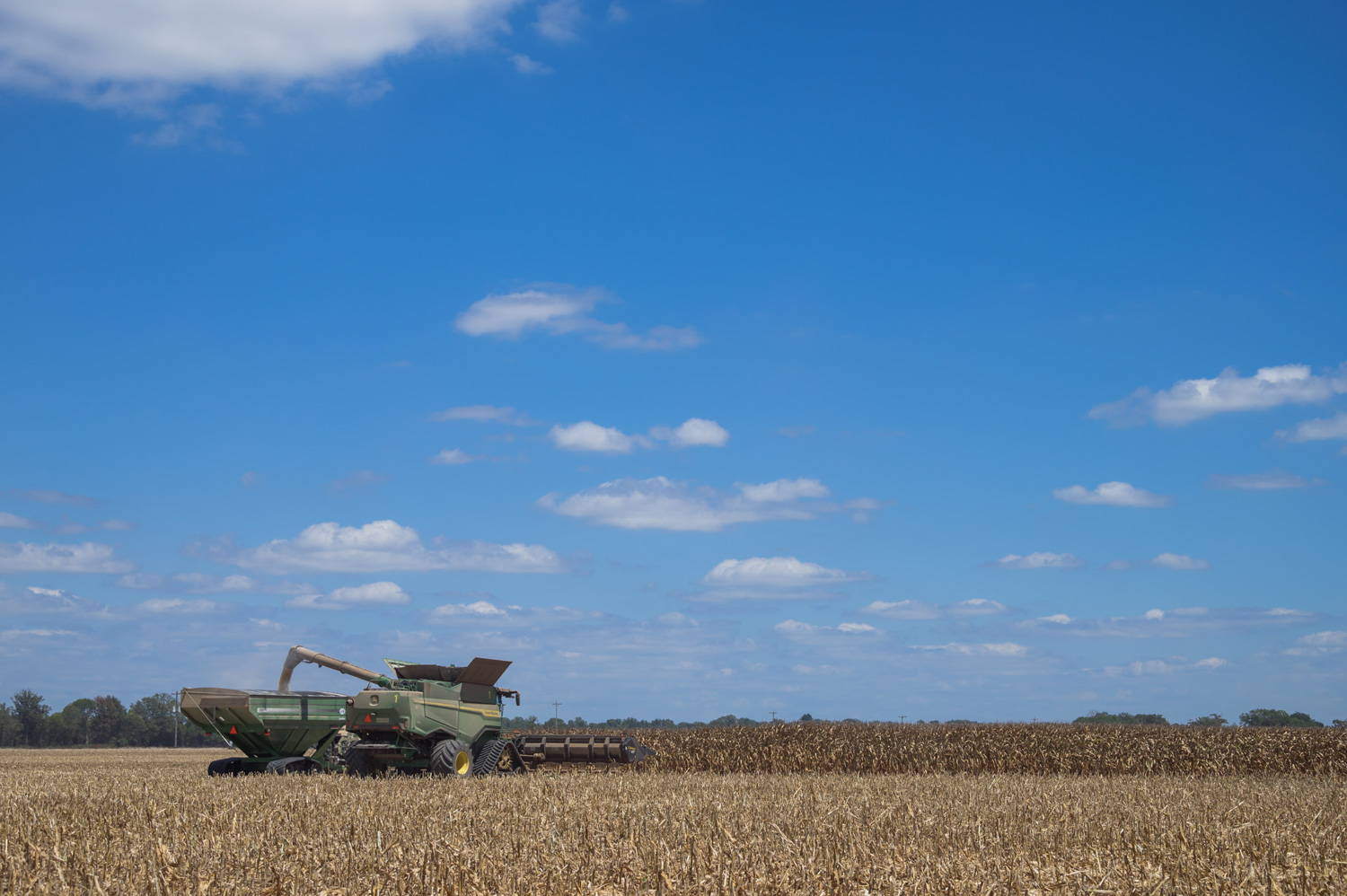
Throughout his years in the field, Belk has focused on how to make the best return on his investments.
“About six or seven years ago, I started doing a lot of my own research on my farm, and I started working with Dr. Erick Larson and his team with some irrigation research,” Belk explains. “And now I grow two variety trials every year; this is my third or fourth year.”
Along with researching corn production, Larson, the Extension corn specialist, offers producers recommendations based on that research. For Belk, making decisions based on the information gathered on the acres he farms is a no-brainer.
“Dr. Larson and his team have a wealth of knowledge and get to look at a scope of varieties,” Belk says. “The variety trials are fun because when you harvest them, you see and you know the immediate results.”
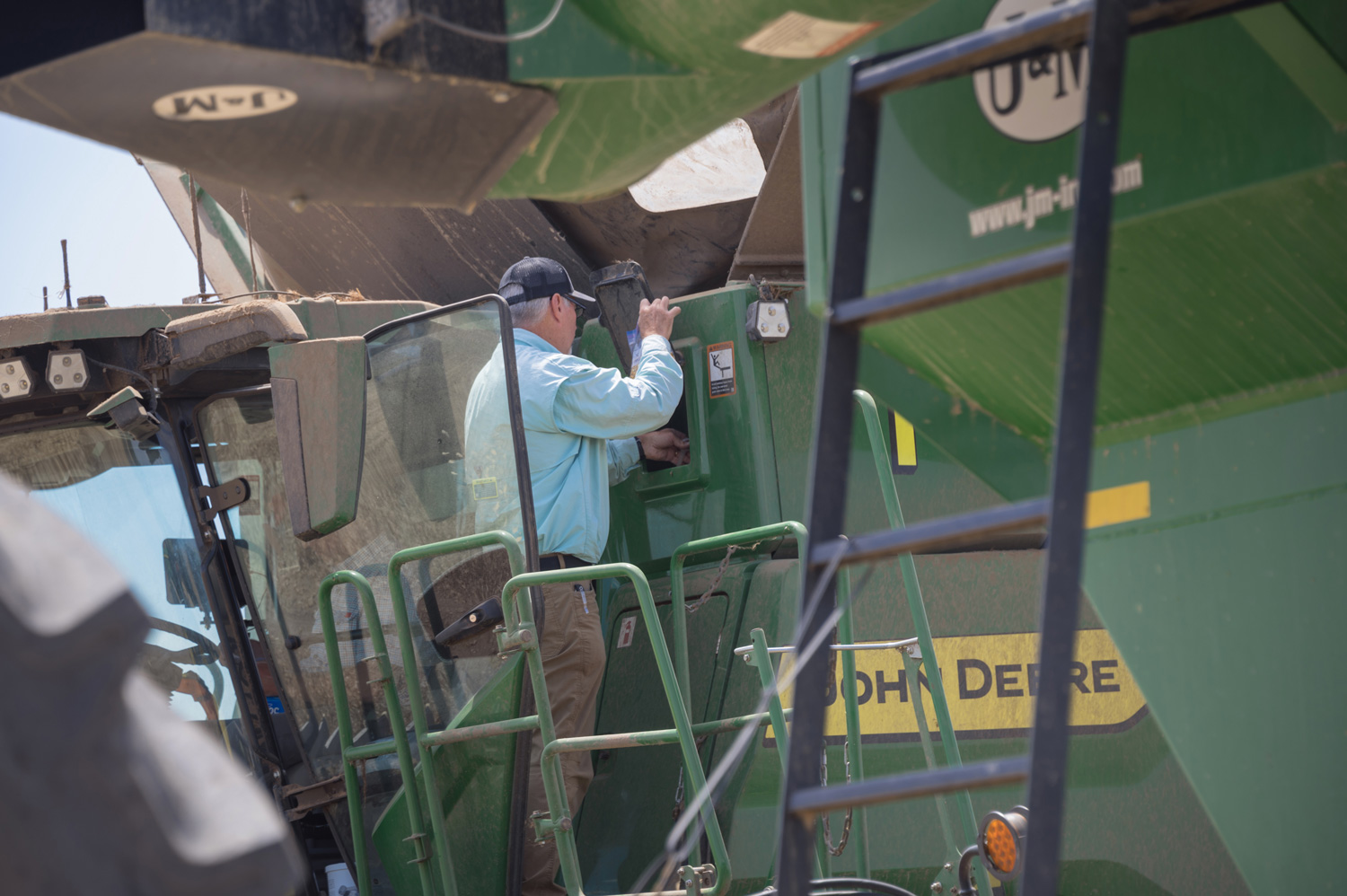
Belk recognizes that data-driven decisions based on production results across his own acres, along with results from similar operations, can be the difference between losing money, breaking even, or making a profit.
“Profit is a scarce word in agriculture right now, but on my farm, Extension has brought value,” Belk says. “Any question I have, they help me figure it out. As a farmer, it’s hard to understand every aspect of the operation, and it is frustrating at times. There’s so much information on the Internet; it’s overburdening.
“So I rely instead on Extension and what’s happening on our farm. I love what I do, and learning—continuing to learn—is important.”
Extension helps him sort through, access, and apply the research results that will help him keep the operation going. Also, because of the research work being conducted on his own farm, Belk has a deeper understanding of which corn varieties to plant.
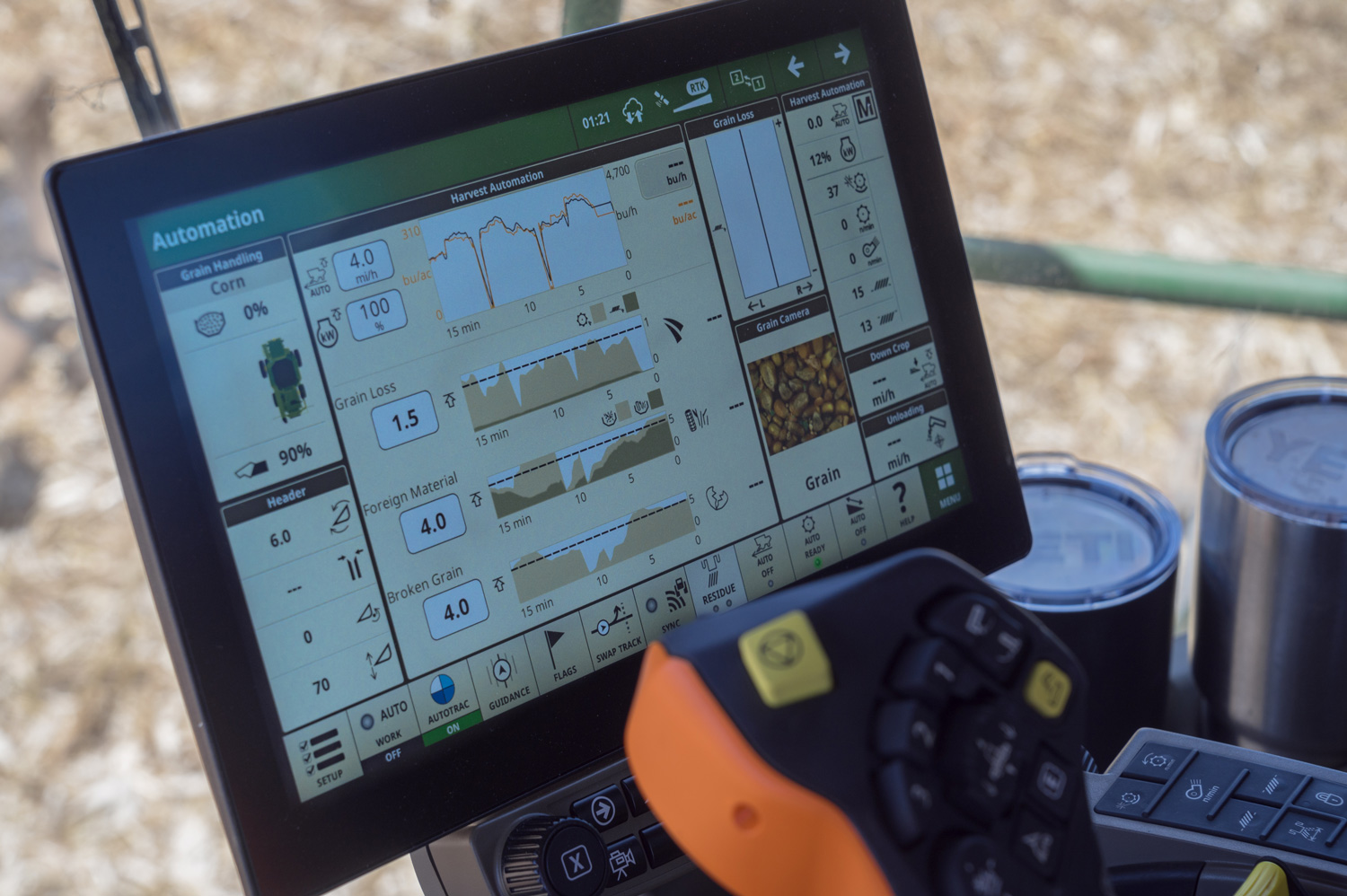
Another bonus: Extension’s research recommendations on irrigation have helped Belk reduce his water usage significantly.
“This is the sixth or seventh year we’ve watered only two or three times to make the corn crop. We’re making good yields, using less water, and seeing that better return on investment,” he says.
The benefits don’t stop there, however.
“Extension helps me swing the needle with variety selection, water and irrigation, and nutrient management. Timing is important, too—the timing of when you plant the right varieties, irrigation scheduling, and nutrient management,” Belk explains. “We’re doing our own research, and Larson’s Extension team is out there, too, showing me ways to improve.”
It’s a real team effort to collect and apply the best data; Belk also credits Chad Swindoll, certified crop advisor of J19 Agriculture and Clay Horton, agronomist, of Flatland Ag Consulting as indispensable partners in implementing data-driven decisions.
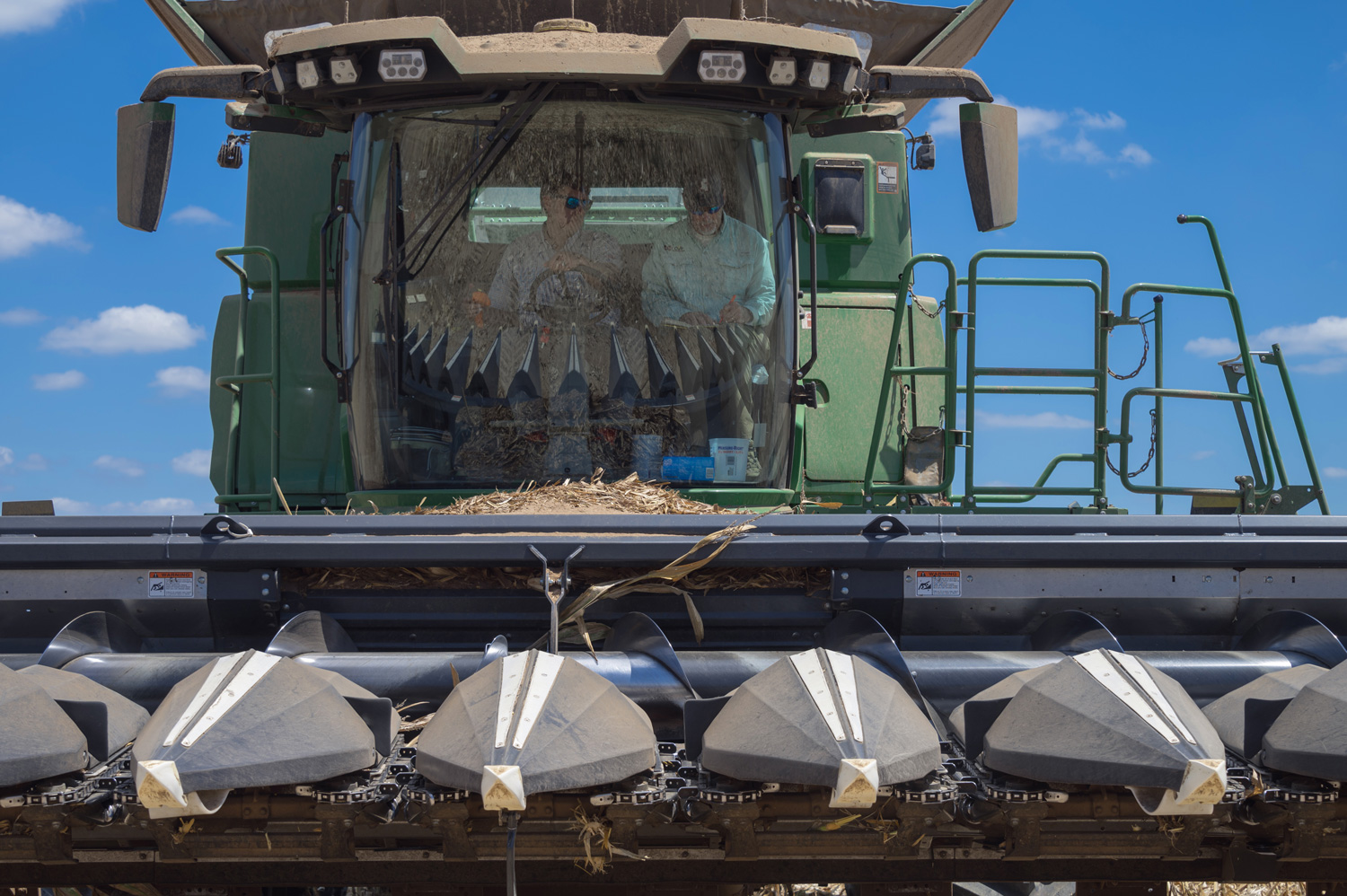
Belk calls himself a first-generation/second-generation farmer because his father is a first-generation producer. However, when Belk decided he also wanted to farm, his dad encouraged him to do it independently.
He started farming 400 rented acres in 2008. At the same time, he was working on his bachelor’s degree in finance and real estate at the University of Mississippi to learn more about the commercial aspects of farming. He graduated from Ole Miss in 2011 and started farming full time.
“My father knew all the valuable lessons that he had from starting on his own, and he thought that would be important for me. He was right,” Belk laughs. “I’ve learned a lot. I mean, I’ve made a lot of mistakes, and if somebody would have just been telling me what to do, I wouldn’t have had the opportunity to make those mistakes on my own and learn from them.
“We are best friends because of that, and work doesn’t come in between our family. It’s been hard, but I’m thankful.”
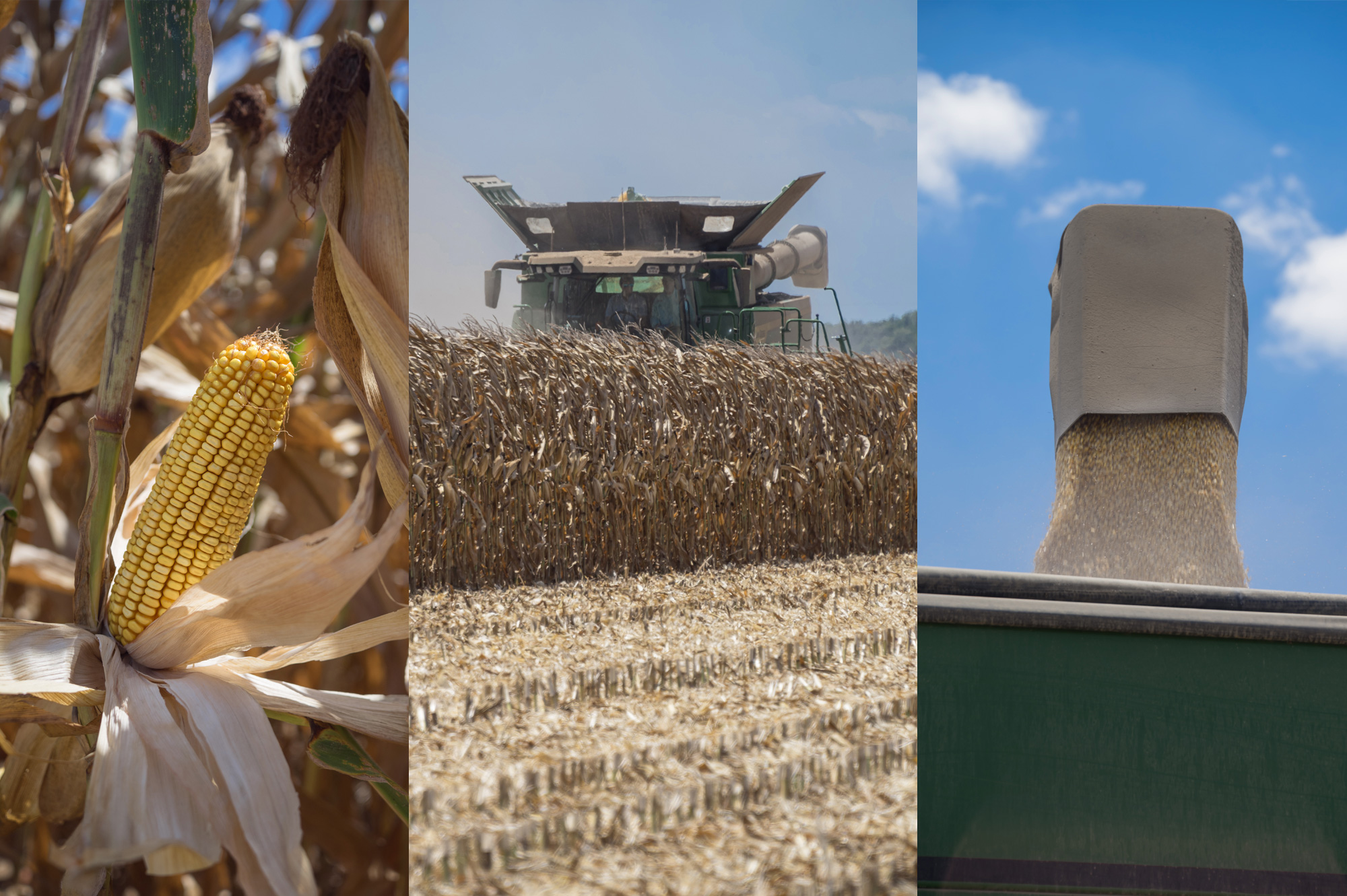
Authors
-
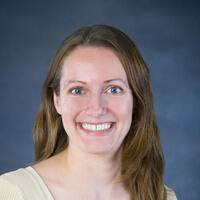 Marketing & Communication Coor
Marketing & Communication Coor- Agricultural Communications
